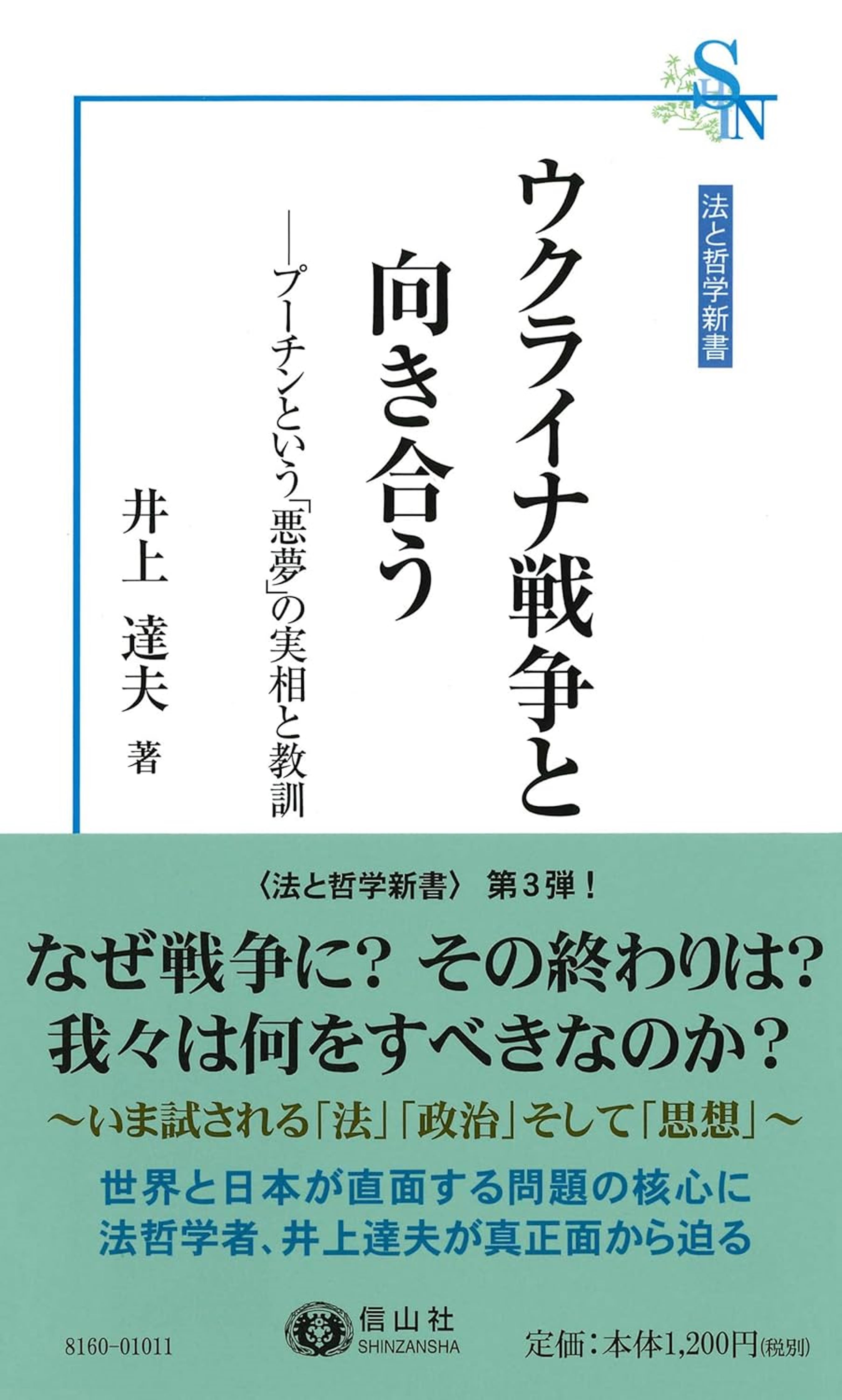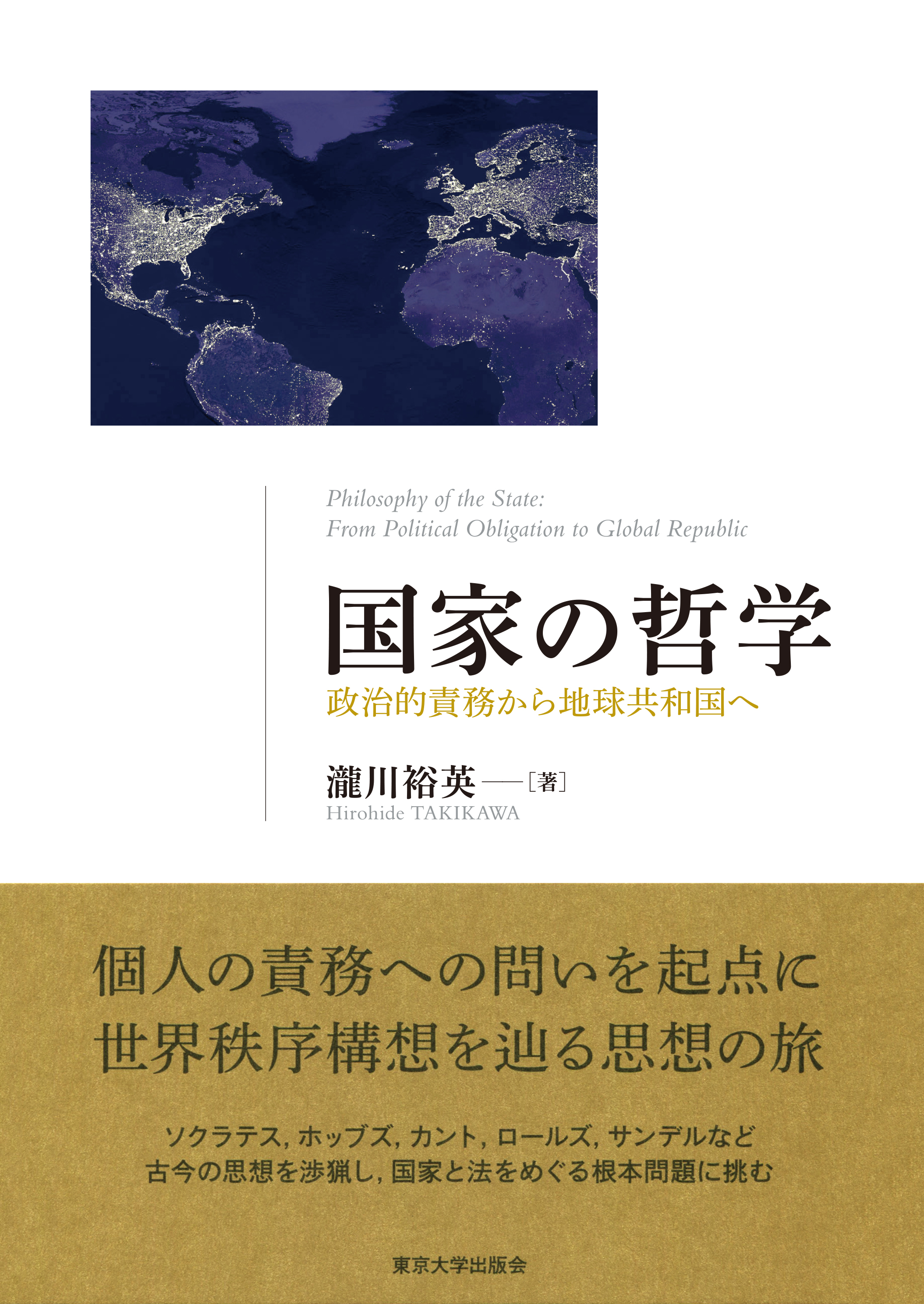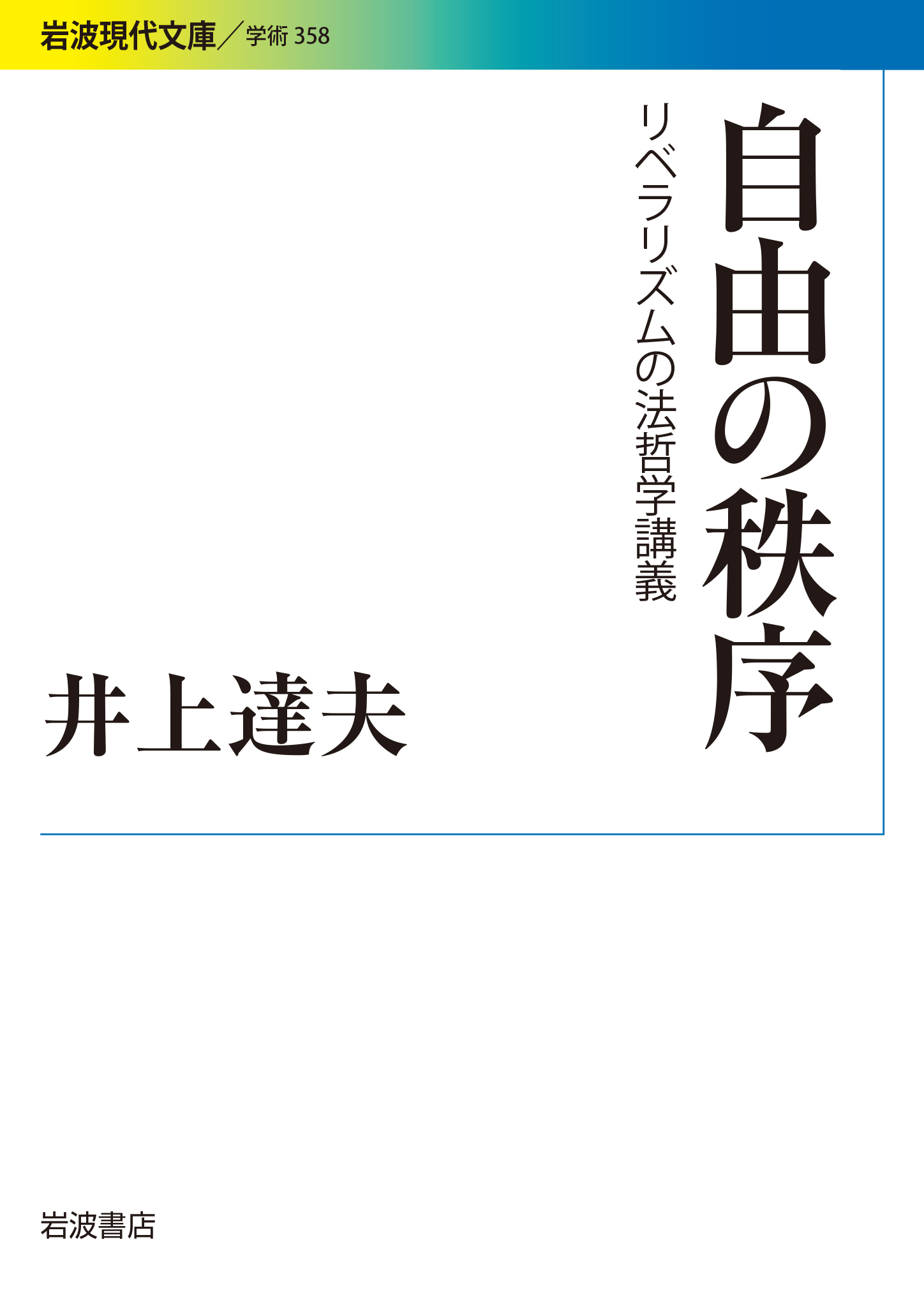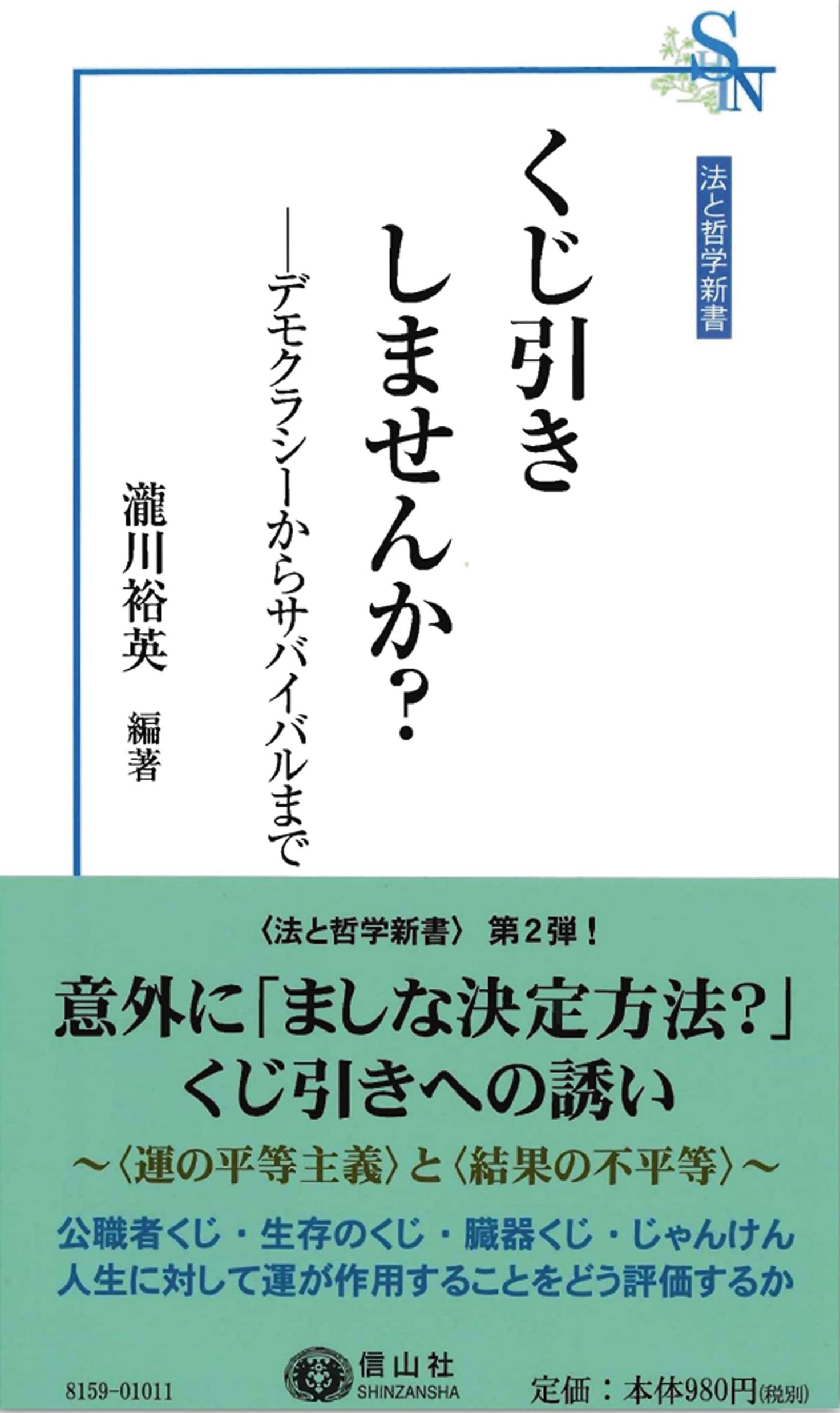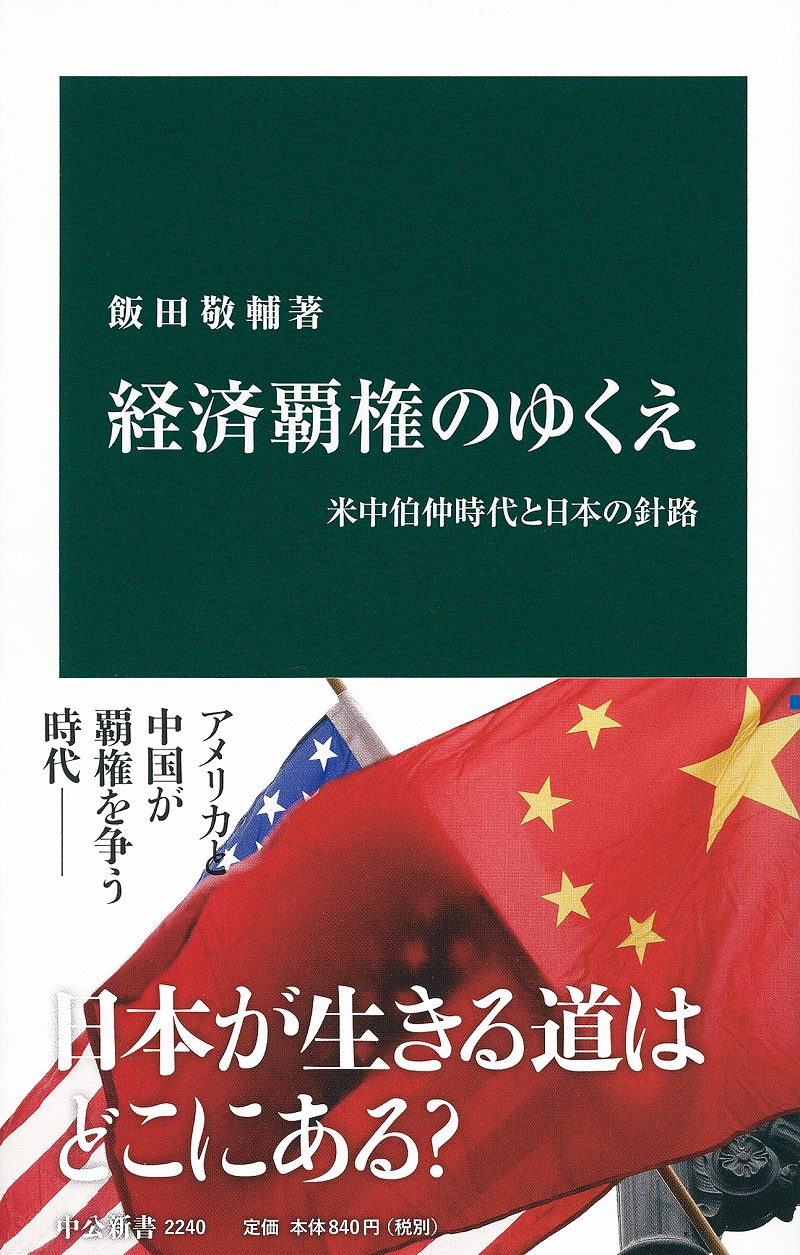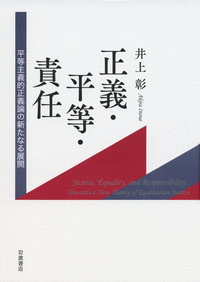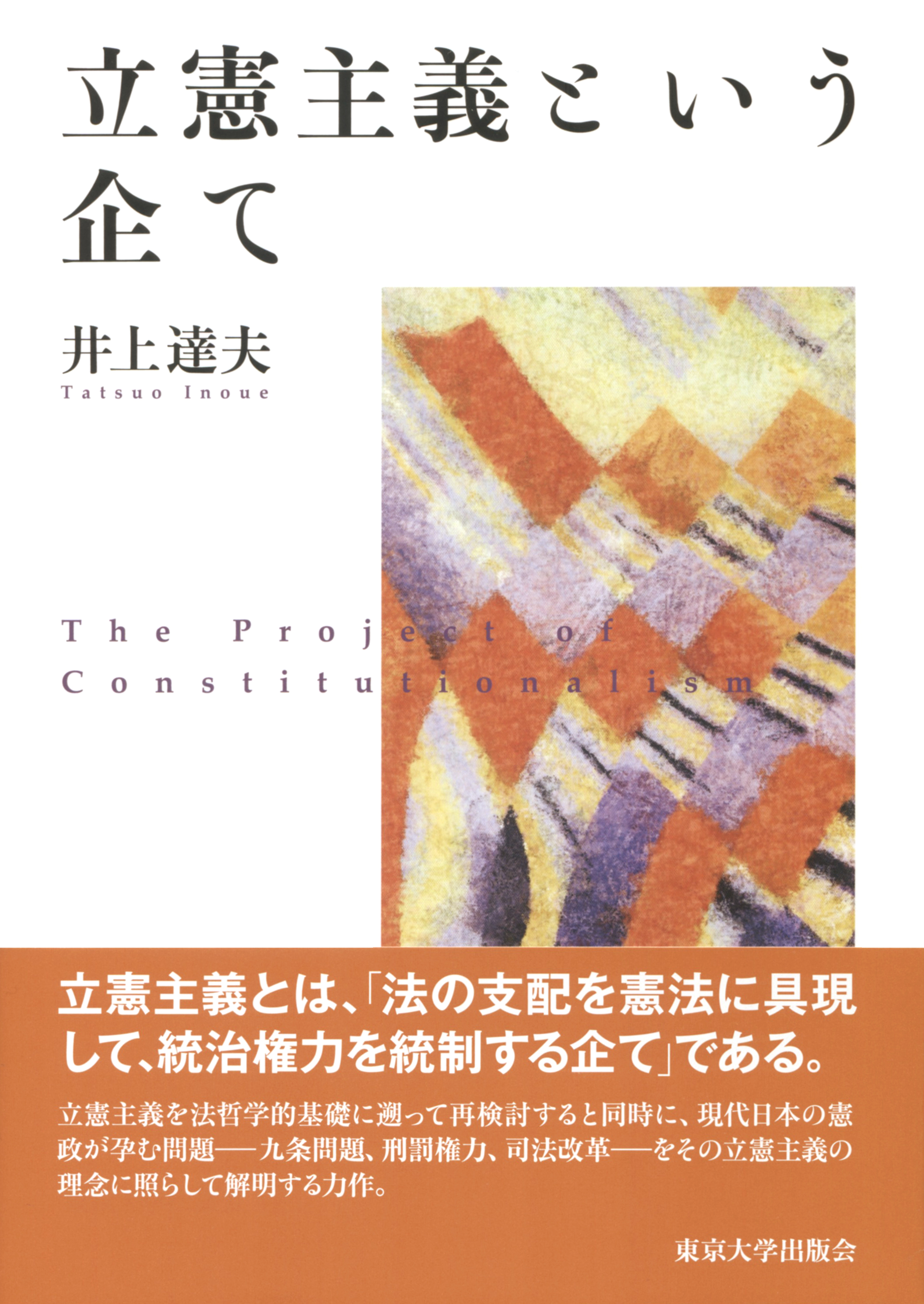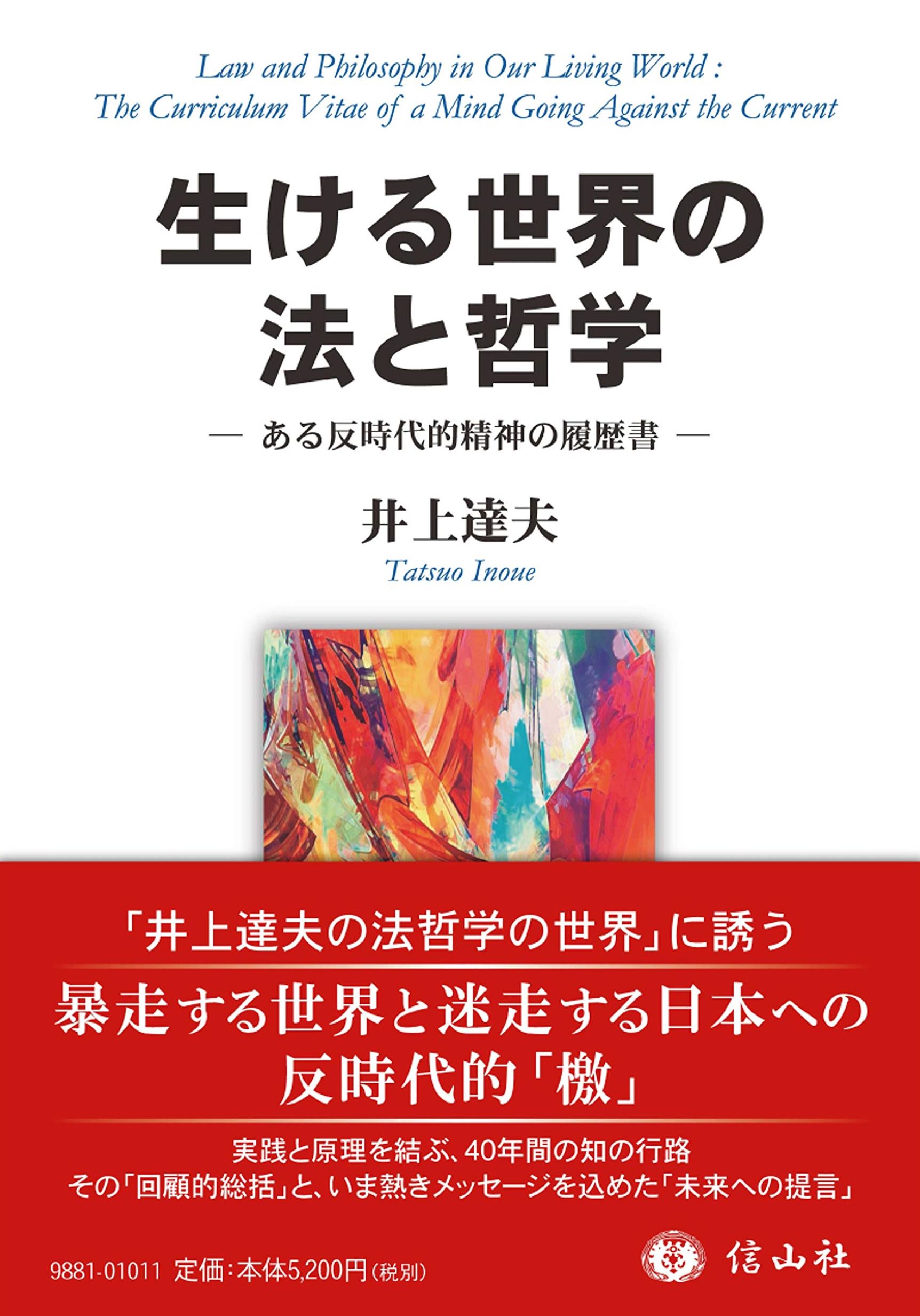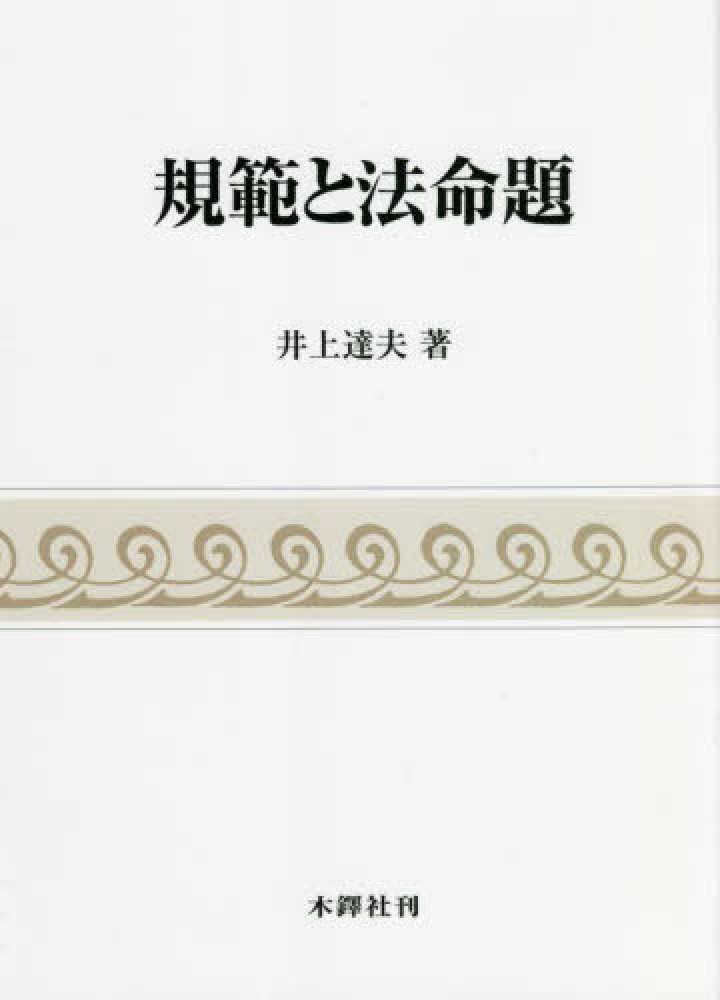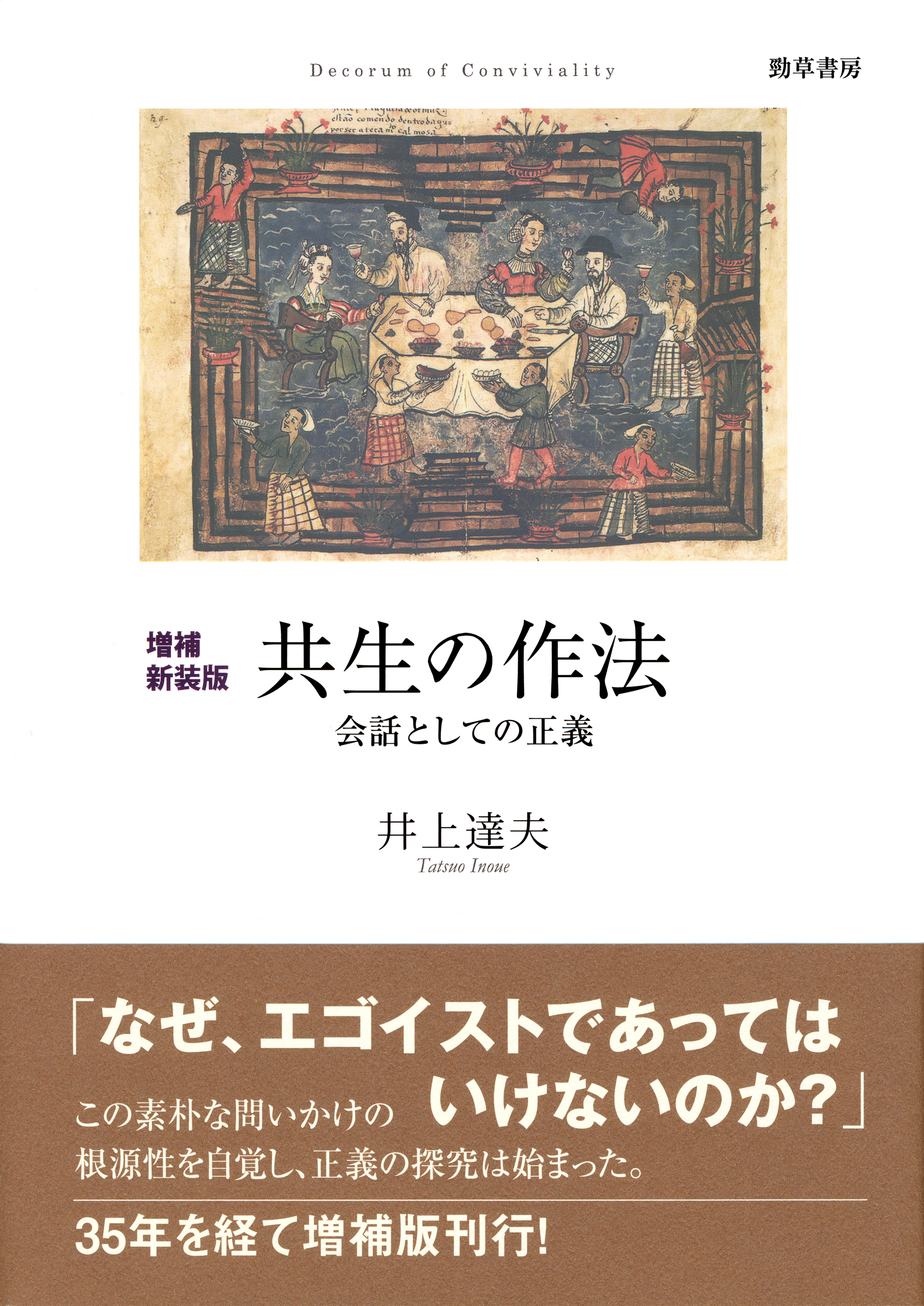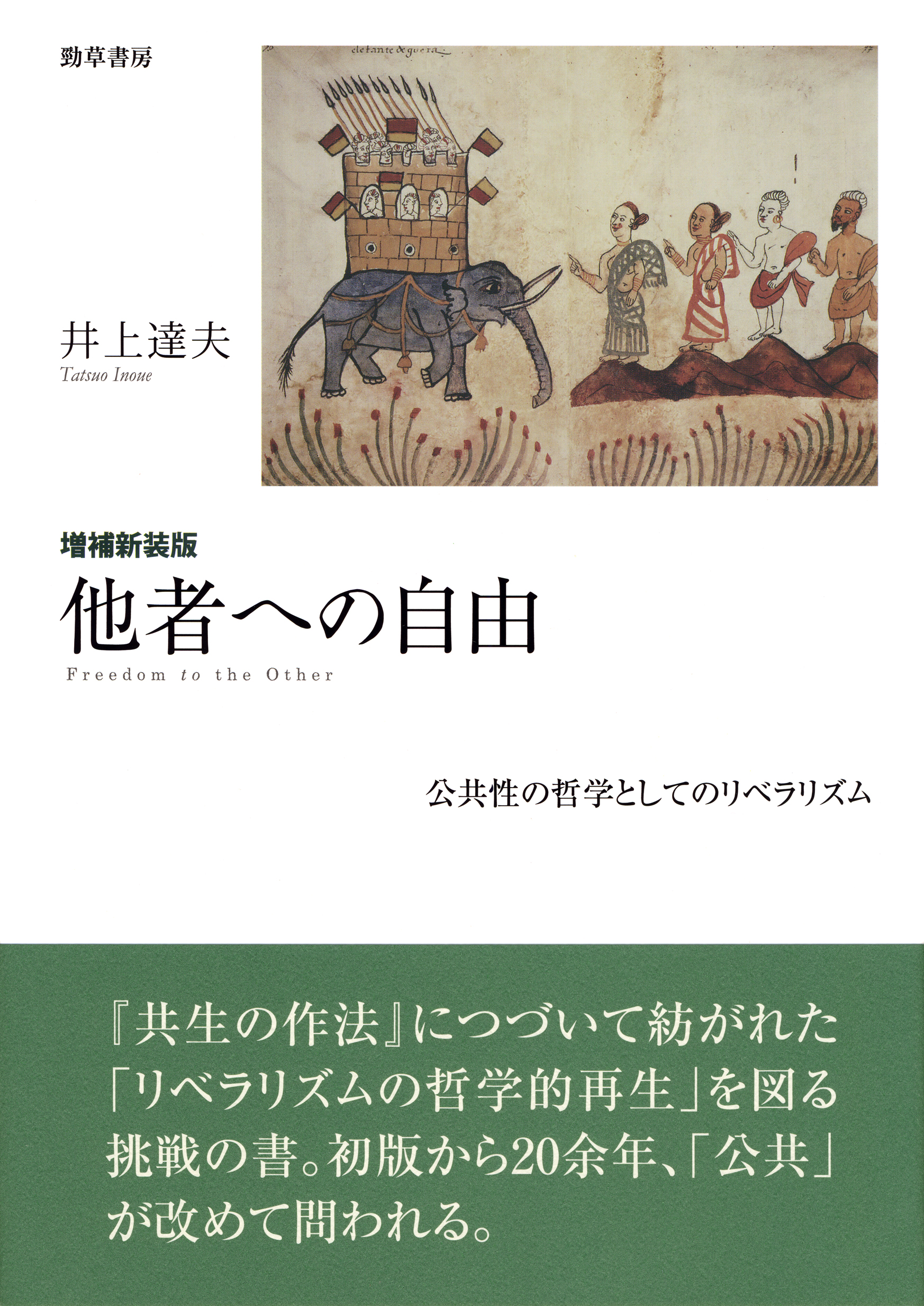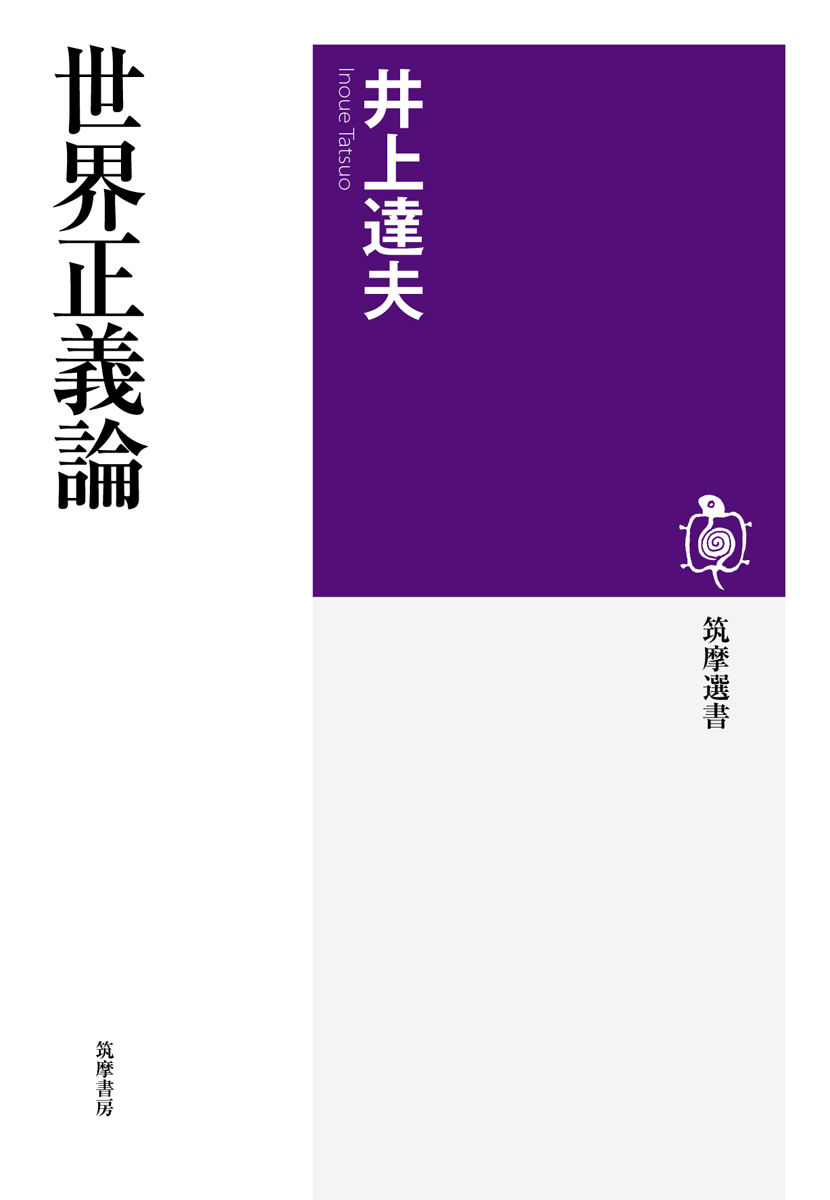
Title
Chikuma Sensho Sekai Seigiron (A Theory of Global Justice)
Size
400 pages, 127x188mm
Language
Japanese
Released
November 13, 2012
ISBN
978-4-480-01558-7
Published by
Chikumashobo Ltd.
Book Info
See Book Availability at Library
Japanese Page
About fifty thousand people die a so-called "poverty-related death" per a day in the current world. In 2003 the United States invaded Iraq on a factually dubious and legally unsustainable ground, killing at least about one hundred thousand and arguably more Iraqi people most of whom are civilians. On the one hand, there are problems of “ineffectual justice incapable of transcending national borders” which are exemplified by the fact that the grave economic injustice of world poverty is left uncorrected. On the other hand, there are problems of “hegemonic justice enabling a super power to transcend national borders selfishly and arbitrarily” in such a way that it can invade disobedient minor nations and kill many innocent civilians. These realities of the world press us to ask a fundamental question: how and whether it is possible to present and defend a credible idea of global justice, i.e., “justice that enables us to transcend self-centered pursuit of our national interests and to make a critical control over hegemonic powers.” The aim of the present book of mine is to elucidate and answer this question in a principled and comprehensive way.
The first chapter constitutes the introduction to this book. It shows what problems a theory of global justice must address and what approach it must take in addressing them. The problems of global justice are analyzed into the following five sets of issues: meta-theory of global justice concerning global applicability of justice, the conditions for international recognition of the legitimacy of the state-regime, global economic justice, justice of war (justifiability of the use of forces in the international society), and the structure of global governance. Recent rapid development of studies in global justice brought about the specialization of research so that researchers tend to confine themselves to a certain set of issues. Against this current, I argue that, in order to understand the causes of the justice-deficit in the current world and find out about an appropriate way to cope with them, it is necessary to take “a comprehensive and multiple-eyed approach.” In this approach, all the five sets of issues are comprehensively discussed so that their mutual connections are revealed, while their different dimensions are also indicated so that short cut and confused merger of different solutions to different issues can be avoided. The following chapters address each of the five sets of issues one-by-one based on this approach.
The main organizing idea of the book is the concept of justice as the common constraint on competing conceptions of justice. It consists in the prohibition of non-universalizable discriminations. Based on this idea, I criticize not just the arrogant oppressive actions of super-powers but also the conservative retreat of some of the major western liberal political philosophers such as John Rawls. These theorists disregard or even conceal the institutional harm inflicted by developed countries on poor developing countries, thereby defending rich developed countries’ economic privileges and their reluctance to cope with the problem of world poverty. Moreover, they even concede the violations of civil and political rights in non-liberal authoritarian regimes like what Rawls called “decent hierarchies.” I present and argue for my alternative view of global justice that try to solve the five sets of issues in such a way that the idea of global justice is not normatively defanged while based on realistic considerations.
More specifically, I advocate the following points:
(1) Reconstruction of the idea of legitimacy based on the concept of justice underlying competing conceptions of justice and integration of sovereignty and human rights;
(2) Philosophical and strategic coupling of the institutional harm theory and the positive duty of assistance theory in global economic justice to make them complementary to each other;
(3) Redefinition and defense of negative just war theory in the issues of justice of war and critical reconstruction of humanitarian intervention based on that theory;
(4) Critical examination of hyper-centralization as seen in the world government and transnational regional unification, on the one hand, and hyper-decentralization as exemplified in transnational corporations and international non-profit organizations, on the other hand, and defense of reconstruction, not deconstruction, of the system of equal sovereignty of nations in the form of what I call "the village of nations."
(Written by INOUE Tatsuo, Professor, Graduate Schools for Law and Politics / 2017)



 Find a book
Find a book


